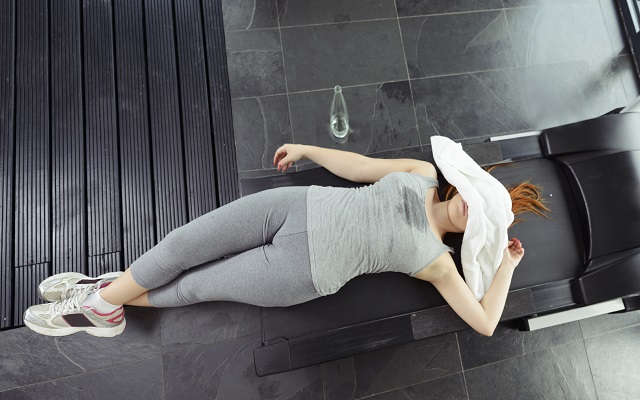Optimal performance and body composition depend on both how long and how well you sleep every night. Consistently missing just one hour of sleep can disrupt metabolism, increase body fat, and blunt important hormones involved in recovery (1-3). In a study from the University of Maastricht in the Netherlands, researchers found that not getting a good night’s sleep reduces the amount of fat you burn in a day by over 50 percent (1).
In this study, subjects had their sleep interpreted by using hourly wake up calls to which the subjects had to respond to by turning off their alarm after two minutes. Even with identical diets, the interrupted sleep group experienced a 52 percent decrease in fatty acid oxidation (fat-burning ability) (1).
Poor sleep, coupled with exhausting exercise and sleepiness, can lead to a lack of motivation, food cravings, and poor training results. Combine that with an inability to tap into fat tissue for fuel and body fat can increase. Even the ability of the body to recover and build metabolically active tissue like muscle is halted.
During sleep, the highest amounts of growth hormone are released to rebuild and recover the body, while the stress hormone cortisol decreases to its lowest level (2). However, in sleep that is even mildly restricted, studies show athletes have increased levels of perceived exertion and decreased insulin sensitivity (3). The result is a poor uptake of vital nutrients like glucose and amino acids, necessary for rebuilding damaged muscle tissue.
Luckily, there are ways to combat these negative effects. Besides making an effort to devote the proper time to sleep and having good sleep hygiene, other methods can improve sleep quality. For example, researchers from the University of Pavia found five milligrams of melatonin (a dose similar to what’s in Isagenix Sleep Support & Renewal™ Spray) taken one hour before bedtime was effective for promoting better sleep quality in older adults (4). Study subjects also slept longer and deeper, found it easier to get up in the morning, and were overall more alert than those receiving a placebo.
In another study, researchers gave three milligrams of melatonin or a placebo to 20 highly trained athletes (5) who consumed their supplement for several nights before a competition. The scientists found that melatonin significantly reduced exercise-induced stress by increasing antioxidant enzyme concentrations.
Melatonin offers better sleep, which means better recovery. Think of sleep as the time to reset all bodily systems. Not giving the body the rest it needs will lead to daily fatigue, interrupted hormone levels, and compromised nutrient uptake. Subsequently, body composition and performance will ultimately suffer. Using Sleep Support and Renewal is an effective way to aid in achieving proper sleep and its active components like melatonin have shown to be powerful aids. An effort should be made to get in at least seven to eight hours of sleep on a consistent basis.
Tips for better sleep-
- Go to bed at a reasonable time.
- Don’t watch TV close to bedtime.
- Don’t sacrifice your social life for sleep, but don’t party every day. Find a balance.
- Don’t use your computer or mobile smart phone near your bed. It can delay your ability to fall asleep.
- Have an IsaLean® Shake, IsaPro®, or other easily digestible food before bed; otherwise digestion may interfere with your sleep quality in the first two hours.
- Use Sleep Support and Renewal before bed to help fall asleep more readily, sleep more soundly, and stay asleep longer through the night.
References
- Hursel R et al. Effects of sleep fragmentation in healthy men on energy expenditure, substrate oxidation, physical activity, and exhaustion measured over 48 h in a respiratory chamber. Am J Clin Nutr 2011;94:804-808.
- Van Cauter E et al. Alterations of circadian rhythmicity and sleep in aging: endocrine consequences. Hormone Res 1997;49:147-52.
- Van Helder T et al. Sleep deprivation and the effect on exercise performance. Sports Med 1989;7:235-247.
- Rondanelli M et al. A double-blind, placebo controlled clinical trial. J Am Geriatrics Soc 2011;59:82-90.
- Ochoa J et al. J Pineal Res 2011;51:373-380.





